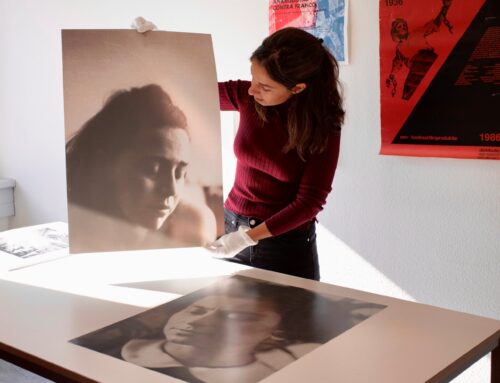 The Netherlands Research School of Gender Studies in cooperation with her partners organises the DOING GENDER Lecture Series. These lectures stress the importance of doing gender work combined with an active involvement in the practice of gender theory and research. The concept of DOING GENDER supports a hands-on approach to gender issues in the sense of social and political engagement with the new forms of gender inequalities that are taking shape in the world today. The lecture series wants to give space to the new generations of gender theorists and practitioners and to perspectives that innovate the field and do gender in new ways. Key is the notion of doing gender: what is the state of the art definition of gender? How do contemporary scholars and activists utilise this definition?
The Netherlands Research School of Gender Studies in cooperation with her partners organises the DOING GENDER Lecture Series. These lectures stress the importance of doing gender work combined with an active involvement in the practice of gender theory and research. The concept of DOING GENDER supports a hands-on approach to gender issues in the sense of social and political engagement with the new forms of gender inequalities that are taking shape in the world today. The lecture series wants to give space to the new generations of gender theorists and practitioners and to perspectives that innovate the field and do gender in new ways. Key is the notion of doing gender: what is the state of the art definition of gender? How do contemporary scholars and activists utilise this definition?
On Thursday April 15, 2021 Chiara Bonfiglioli will give the Doing Gender Lecture Gender, deindustrialisation and precarity in Croatia: Garment workers’ struggles for social justice and everyday survival strategies.
Lecture: Gender, deindustrialisation and precarity in Croatia: Garment workers’ struggles for social justice and everyday survival strategies.
Textile and garment production thrived in socialist Yugoslavia during the 1970s and 1980s, when the sector covered approximately 12% of total manufacturing. Local fashion brands competed on the internal market, simultaneously exporting their production worldwide, and employing a prevailingly female workforce across the country. This came to an end after the break-up of Yugoslavia, when processes of privatisation and deindustrialisation, together with global changes in garment production, deeply affected the textile sector. Over 350.000 jobs were lost in the industry, while textile work in new private companies, mainly subcontractors for major Western brands, became increasingly exploitative and precarious.
The demise of industrial production generated various forms of protests among former industrial workers in post-Yugoslav states. In urban settings, particularly in Serbia, Bosnia-Herzegovina and Croatia, these protests often overlapped with wider social movements that have been opposing the neo-liberal privatisation of public space and resources, building upon civic forms of belonging rather than on nationalist and ethnic ones. The first part of the talk will consider garment workers’ strikes against factory closures and unpaid wages in Croatia, notably the Kamensko workers’ 2010 hunger strike, held in Zagreb, and the Arena workers’ 2014 “catwalk on strike”, which took place in Pula. The Kamensko and Arena protests fostered civic solidarity as well as a variety of intergenerational cultural projects initiated by younger activists who feel emotionally connected to the socialist industrial heritage. The second part of the talk will focus on individual workers’ narratives of everyday resilience, and on their post-socialist survival strategies through cross-border work migration, informal work, and handcrafting in the towns of Varaždin, Sinj and Pula.
Biography:
Chiara Bonfiglioli is a Lecturer in Gender & Women’s Studies at University College Cork, Ireland, where she coordinates the Masters programme in Women’s Studies. After obtaining a PhD from the Graduate Gender Programme at the University of Utrecht, she held post-doctoral fellowships at the University of Edinburgh, the University of Pula, and the Institute for Human Sciences (IWM) in Vienna. Her research addresses transnational gender and women’s history with a specific focus on the former Yugoslavia and Italy. She is the author of Women and Industry in the Balkans: The Rise and Fall of the Yugoslav Textile Sector (London: I. B. Tauris/Bloomsbury, 2019).
Details lecture:
Doing Gender Lecture Chiara Bonfiglioli
Thursday April 15, 2021
Lecture: Gender, deindustrialisation and precarity in Croatia: Garment workers’ struggles for social justice and everyday survival strategies
Time: 14.30 – 15.45 hrs
Location: online via Teams
Chair: Prof. Dr. Rosemarie Buikema
Registration: nog@uu.nl ; link will be sent after registration.






